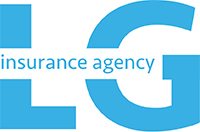Why are insurance premiums going up? There are a number of factors that contribute to this, including inflation, the hard market starting in 2019, social inflation, reinsurance, and increased insurance fraud claims. Increases in insurance costs are unfortunately unavoidable for most people, but there may be ways to save money on your premiums.
Insurance is going up for auto, home, and business – no one is safe from the increases. The good news is that insurance companies have to increase premiums gradually so that policyholders have time to budget for the changes. The bad news is that insurance costs are outpacing wages and inflation, which means that your premium could go up significantly over the next few years.
Even if your premiums go up, there may be methods to save money. For example, you may get a lower deductible or a discount on your premium. Continue reading to learn more about why prices are being driven up and also what can be done to mitigate the costs.
How Does Inflation Become a Factor in Insurance Costs?
Inflation, by definition, is the general increase in the price of goods and services over time. It’s important to insurance companies because it’s one of the main drivers of loss costs. The reasoning is that as prices go up, so does the cost of repairs. And since insurance companies have to pay for repairs, they need to account for inflation when setting premiums.
There are a few different ways to measure inflation, but the most common is the Consumer Price Index (CPI). The CPI measures changes in prices for a basket of goods and services that consumers purchase on a regular basis. It’s released by the Bureau of Labor Statistics every month. And while there can be some variation from month-to-month, the long-term trend is what’s most important to insurance companies.
Currently, the CPI is increasing at a rate of about two percent per year. That may not sound like much, but it can have a big impact on insurance premiums. For example, if your insurance policy has a $100,000 limit and the CPI increases by two percent, your insurance company will need an extra $2000 just to keep up with inflation. And since insurance companies are in the business of making money, they’ll likely charge you more than that.
Hard Market: The Cycle of the Insurance Market
The insurance industry is always in a state of flux. Companies are constantly trying to find ways to make more money, while customers are always looking for ways to save. In recent years, there has been a hard market in the insurance industry. This means that insurance companies have been raising premiums and rates in order to make more money.
What is a “Hard Market”?
A hard market is when insurance companies raise premiums and rates in order to make more money. This happens when insurance companies are struggling to make a profit. They will often do this in order to protect their bottom line.
What is a “Soft Market”?
A soft market is when insurance companies lower premiums and rates in order to attract more customers. This happens when insurance companies are doing well and they want to gain more market share.
Why did the Hard Market Start in 2019?
There are a few reasons why the hard market started in 2019. One reason is that insurance companies have been losing money due to natural disasters. In 2017 and 2018, there were a number of hurricanes and wildfires that caused billions of dollars in damage. This has led to insurance companies having to pay out more in claims than they have been taking in premiums.
Another reason why the hard market started in 2019 is because investment income has been down. Insurance companies make money by investing the premiums that they collect. When investment income is down, this means that insurance companies have less money to work with.
So what does this mean for you?
If you are looking to buy insurance, you will likely find that rates have gone up. This is because insurance companies are trying to make up for the losses that they have incurred. If you already have insurance, you may find that your rates go up at renewal time. Insurance companies are allowed to raise rates at renewal time, so this is something that you will need to be prepared for.
What is Social Inflation?
In recent years, there’s been an increase in what’s called “social inflation.” This refers to the trend of people being more likely to sue over small injuries and also the increase in awards given by juries.
There are a few different factors that have contributed to social inflation. One is the change in society’s attitude towards personal responsibility. In the past, people were more likely to accept blame for their own accidents. But now, people are quick to point the finger at someone else. We now live in a world where people are much more focused on their own needs and wants. And if something goes wrong, they’re quick to look for someone else to blame.
Finally, there’s been an increase in advertising by personal injury lawyers. They’re everywhere, from TV to radio to the internet. And they’re always talking about how much money you could get if you sue someone.
These are some of the factors that have led to an increase in the number of lawsuits being filed. And when insurance companies have to pay out more money in settlements and jury awards, it drives up premiums for everyone.
What is Reinsurance?
Reinsurance is insurance that insurance companies purchase to protect themselves from large losses. It’s basically insurance for insurance companies. And it’s a big business. In 2018, the global reinsurance market was worth about $575 billion.
There are two main types of reinsurance: property and casualty reinsurance and life reinsurance. Property and casualty reinsurance protects insurance companies from losses due to events like fires, hurricanes, and earthquakes. Life reinsurance protects insurance companies from the death of policyholders.
Reinsurance is important because it helps insurance companies protect themselves from catastrophic losses. And it’s also a way for insurance companies to spread out their risk. By buying reinsurance, an insurance company can reduce its exposure to any one particular event.
Why are Reinsurance Costs Going Up?
There are a few different reasons why reinsurance costs have been increasing in recent years. One is that we’ve seen an increase in natural disasters. In 2017, there were 16 natural catastrophes that each caused more than One billion dollars in damage.
Another reason is that insurance companies have been increasingly aggressive in their underwriting. That means they’ve been writing more policies with higher limits and lower deductibles. And while that can be good for customers in the short-term, it can lead to big losses for insurance companies if there’s a major disaster.
Finally, insurance companies have been investing less of their premiums in the stock market. That’s because stocks have become more volatile in recent years. And when insurance companies invest in stocks, they’re taking on additional risk.
All of these factors have led to an increase in reinsurance costs and that, in turn, has led to an increase in insurance premiums for consumers.
The Cost of Insurance Fraud: How It Affects You
Insurance fraud costs the insurance industry billions of dollars every year. This fraud can come in many different forms, such as people making false insurance claims, or insurance companies committing fraud themselves. As a result of this rampant fraud, insurance premiums have been increasing at an alarming rate.
A report from the Coalition Against Insurance Fraud showed that insurance fraud now costs Americans and businesses $308.6 billion annually, which is the first update to this number in 27 years. This updated figure includes other lines of insurance such as life and health, workers’ compensation, and auto theft.
According to the study, property and casualty fraud was $45 billion, workers’ compensation fraud was $34 billion, health care fraud was $36.3 billion, and life insurance fraud was $74.7 billion. Auto theft-related fraud amounted to $7.4 billion.
What Can You Do About Rising Insurance Costs?
There’s no question that insurance premiums are going up. But there are a few things you can do to try to offset some of the increases.
One is to shop around and compare rates. Insurance companies charge different rates for the same coverage. So it pays to shop around and see who’s offering the best deal.
Another thing you can do is to ask about discounts. Many insurance companies offer discounts for things like having a good driving record or installing security devices in your home. So it’s worth asking your insurance company if you could be eligible for any discounts.
Finally, you can consider raising your deductible. The deductible is the amount of money you have to pay before your insurance policy kicks in. And if you raise your deductible, your premium will usually go down.
Of course, you need to be careful about how much you raise your deductible. If you raise it too high, you could end up having to pay a lot of money out of pocket if you have a claim. So it’s important to strike a balance between what you can afford to pay and what makes sense for your particular situation.
The Bottom Line
There’s no question that insurance premiums are going up. But there are a few things you can do to try to offset some of the increases. By shopping around, asking about discounts, and raising your deductible, you can save money on your insurance premiums. And that’s important because the last thing you want is to be overpaying for insurance and underprotected.
What are your thoughts? Have you been seeing increases in your insurance premiums? What have you been doing to try to offset the increases? We’d love to hear from you.


